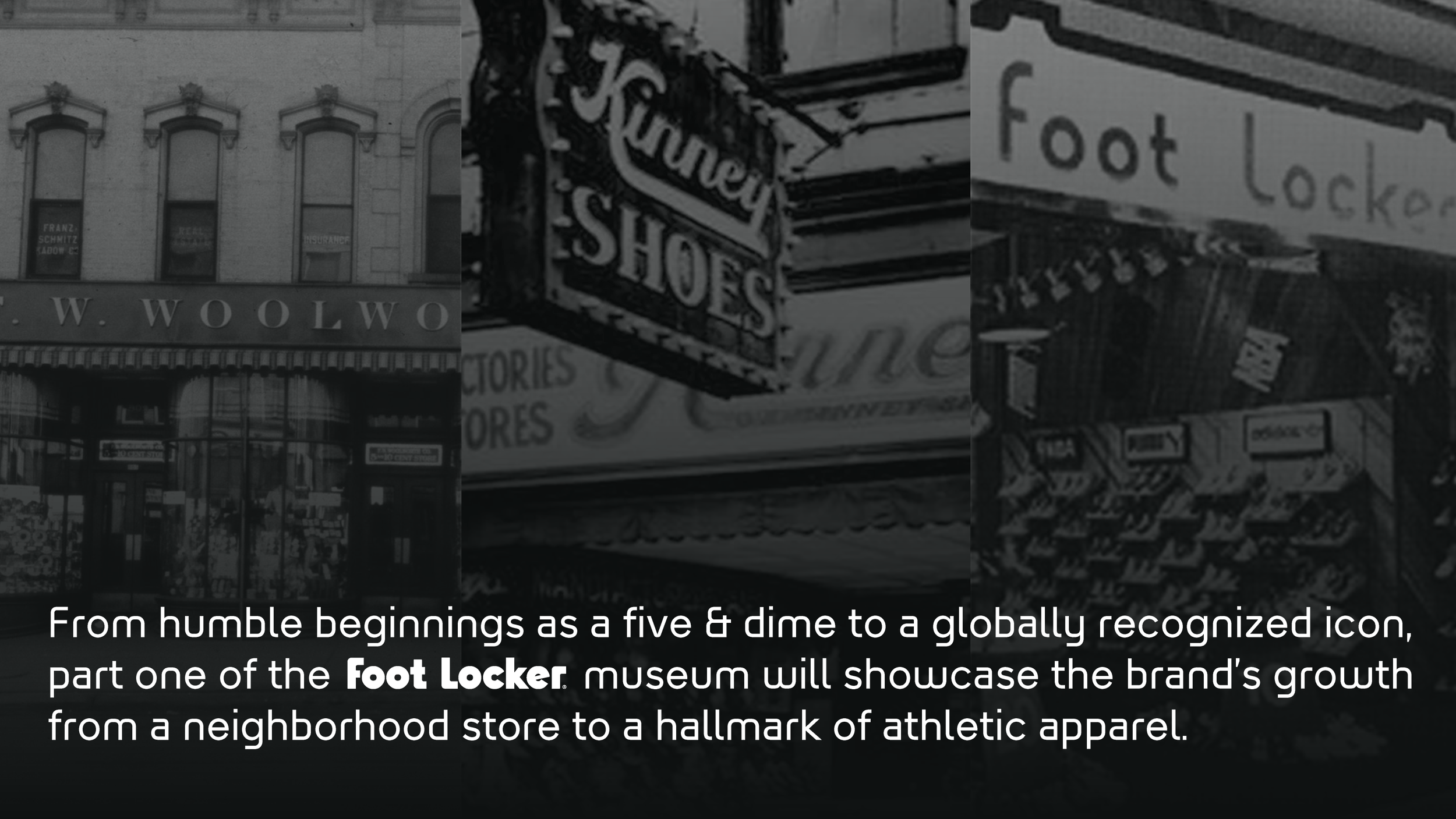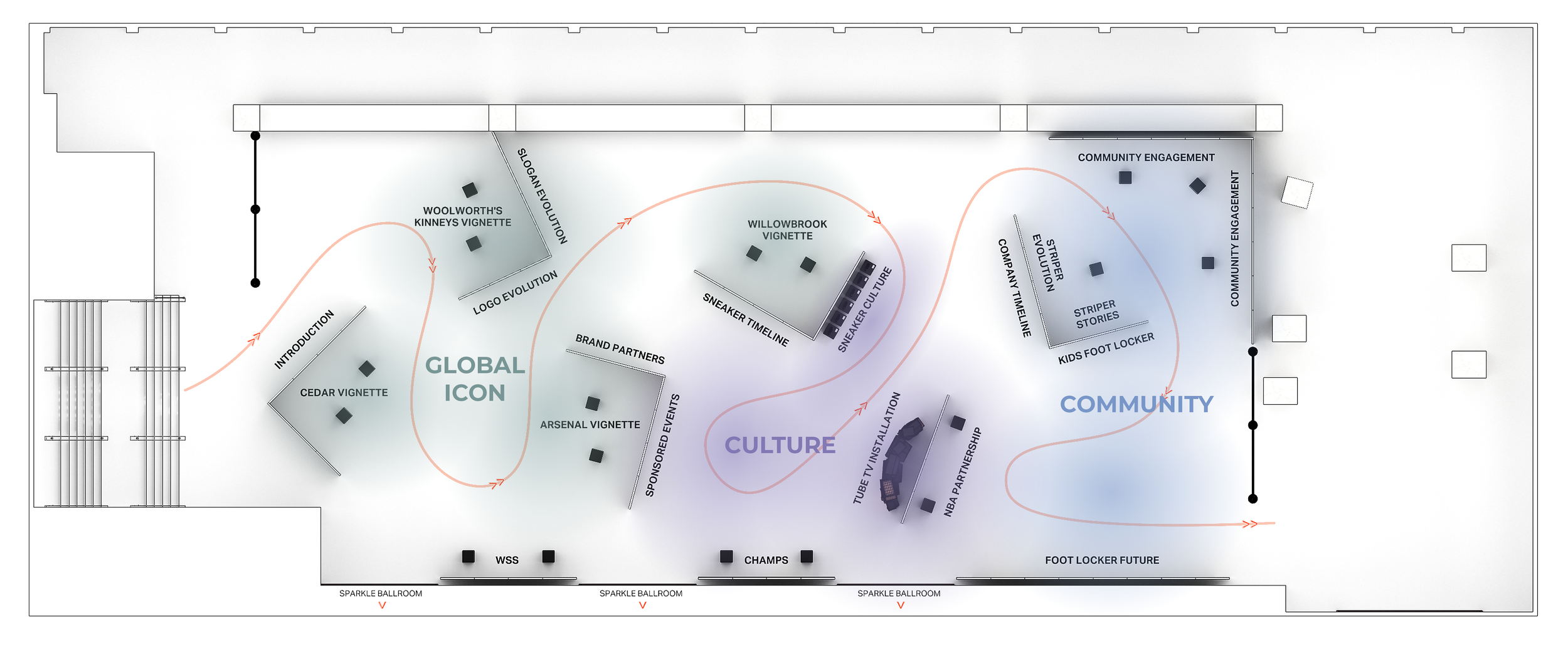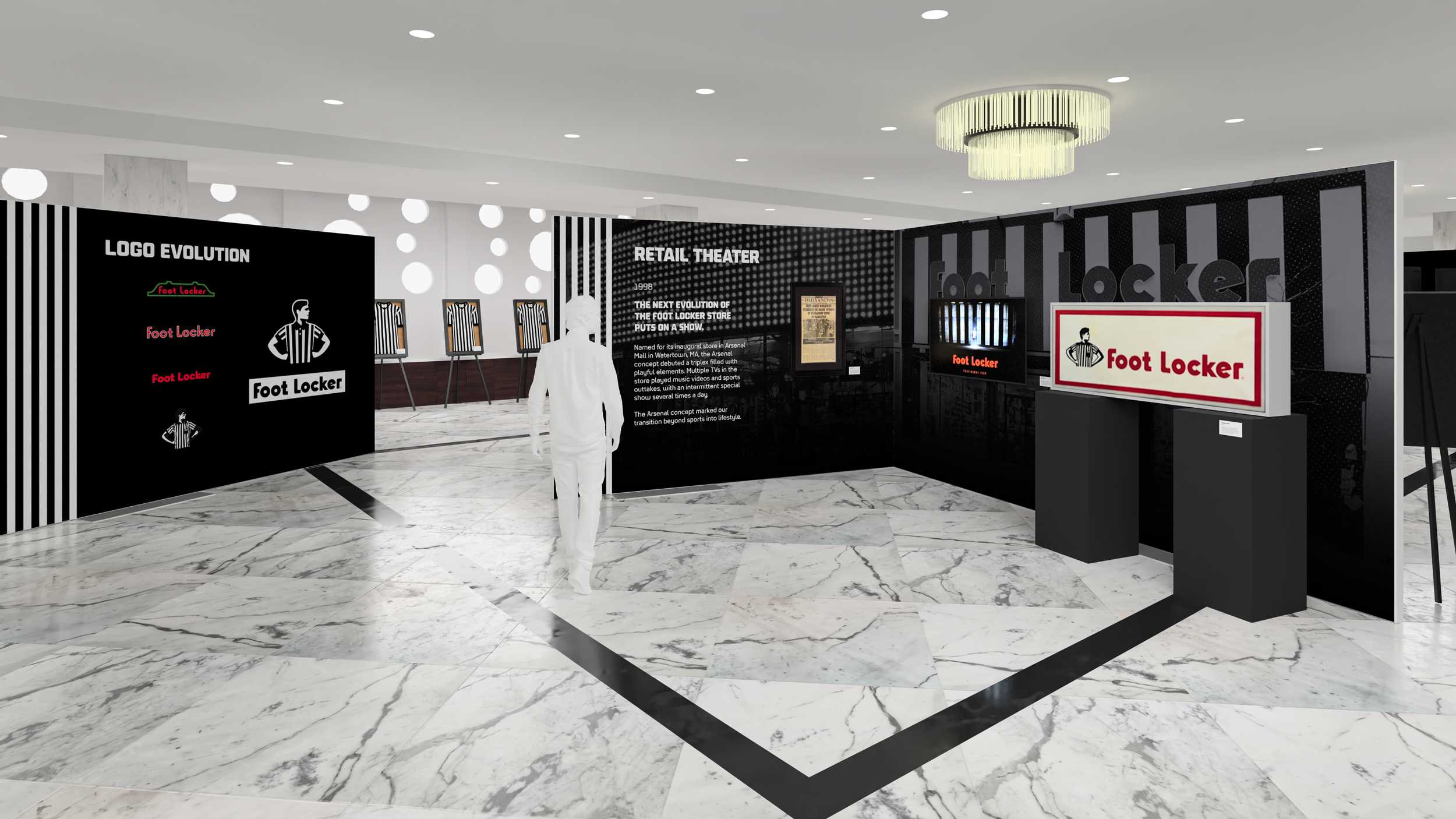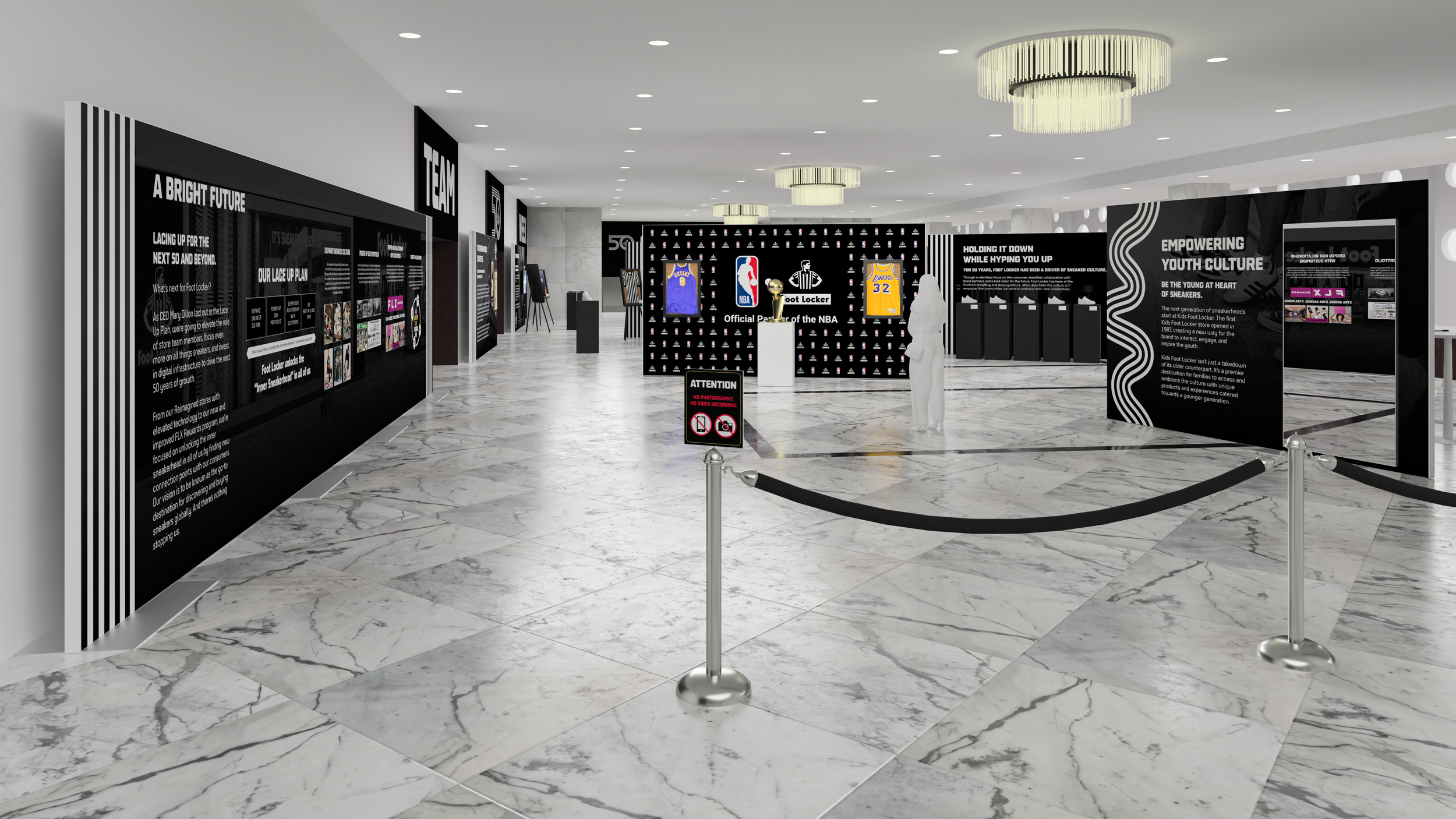Foot Locker Team Week 2024 - Fontainebleau Miami Beach
Elevating a simple ask into something memorable
Effective design starts with why
Why is my client asking for examples of museum pedestals?
Foot Locker wasn’t looking to show off a collection of memorabilia. They were looking for a meaningful showcase of the company’s legacy.
Rather than focus on elevating artifacts, I reframed the brief into a discovery of how Foot Locker made an impact over their 50 year history.
Story leads, design follows
By focusing on the story, I created a framework to organize Foot Locker’s catalogue of artifacts into a cohesive museum experience. My narrative development also prompted the outreach and collection of missing memorabilia and archival photos to fill in the historical, cultural, and community legacy in a way that felt both authentic and deeply engaging.
Substance is cheaper than spectacle
The strategy was simple: build a space that let the story lead. The final design stayed true to the original vision, proving that a strong story can carry the weight of an experience without relying on highly custom displays.
From concept to render to reality
Focusing on flashy, bespoke displays is a quick path to blowing the budget. But with a strong narrative driving the experience, the museum didn’t need spectacle to make an impact. I focused the limited budget on what mattered most: clear storytelling, thoughtful flow, and authentic connection to Foot Locker’s legacy.
TL;DR
Foot Locker asked for museum display ideas. I delivered a cohesive, narrative-driven experience that proves good design isn’t performative, it focuses on what matters most. The result was tears of appreciation from the board of directors (like, actually); plans to integrate the museum story and photo collection into company onboarding; and a limited-edition bomber jacket gifted by my clients.




















